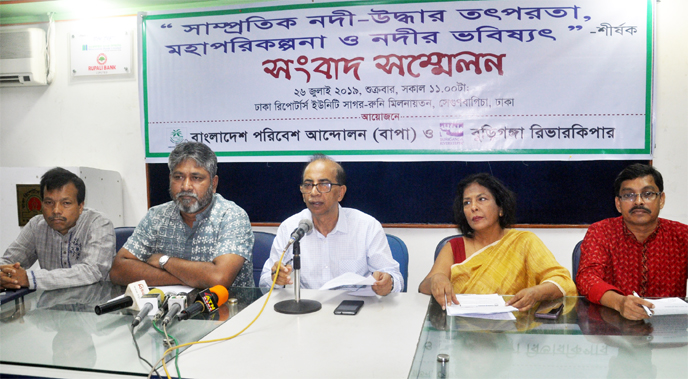
BSS, Dhaka :
The World Food Programme (WFP) is working with the government of Bangladesh to assist over 275,000 people affected by flooding in the north-west of the country, activating an innovative forecast-based financing project.
“Home to over 700 rivers, Bangladesh is increasingly seeing the impact of climate change. Erratic monsoon and downpours are causing severe floods,” said Richard Ragan, WFP Representative and Country Director in Bangladesh. “WFP is using a combination of cash and food to urgently meet the basic needs of more than a quarter million people whose homes and agricultural land have been inundated,” Richard Ragan added.
To mitigate the impact of the severe flooding, the Bangladesh government and WFP have activated their forecast-based financing project for the first time. This innovative approach uses weather forecasts to trigger early actions, such as cash transfers, that can help reduce the impact of natural disasters in conjunction with existing disaster relief interventions. Around 5,000 households (25,000 people) received US$53 through mobile money transfers in Kurigram district as part of the project. Cash was distributed to the most vulnerable, including families headed by people with disabilities, the elderly and single women. The assistance helped people pay for basic needs such as food and other urgently needed goods and services.
WFP is supporting more than 250,000 people in three north western districts with fortified biscuits that will sustain them for three days as an immediate response to the floods The biscuits are often used in emergencies as they are nutritious, easy to transport and do not need cooking.
The Bangladesh Ministry of Disaster Management and Relief reports that 2.3 million people have been affected in 20 of 64 districts in the country.
The World Food Programme (WFP) is working with the government of Bangladesh to assist over 275,000 people affected by flooding in the north-west of the country, activating an innovative forecast-based financing project.
“Home to over 700 rivers, Bangladesh is increasingly seeing the impact of climate change. Erratic monsoon and downpours are causing severe floods,” said Richard Ragan, WFP Representative and Country Director in Bangladesh. “WFP is using a combination of cash and food to urgently meet the basic needs of more than a quarter million people whose homes and agricultural land have been inundated,” Richard Ragan added.
To mitigate the impact of the severe flooding, the Bangladesh government and WFP have activated their forecast-based financing project for the first time. This innovative approach uses weather forecasts to trigger early actions, such as cash transfers, that can help reduce the impact of natural disasters in conjunction with existing disaster relief interventions. Around 5,000 households (25,000 people) received US$53 through mobile money transfers in Kurigram district as part of the project. Cash was distributed to the most vulnerable, including families headed by people with disabilities, the elderly and single women. The assistance helped people pay for basic needs such as food and other urgently needed goods and services.
WFP is supporting more than 250,000 people in three north western districts with fortified biscuits that will sustain them for three days as an immediate response to the floods The biscuits are often used in emergencies as they are nutritious, easy to transport and do not need cooking.
The Bangladesh Ministry of Disaster Management and Relief reports that 2.3 million people have been affected in 20 of 64 districts in the country.

